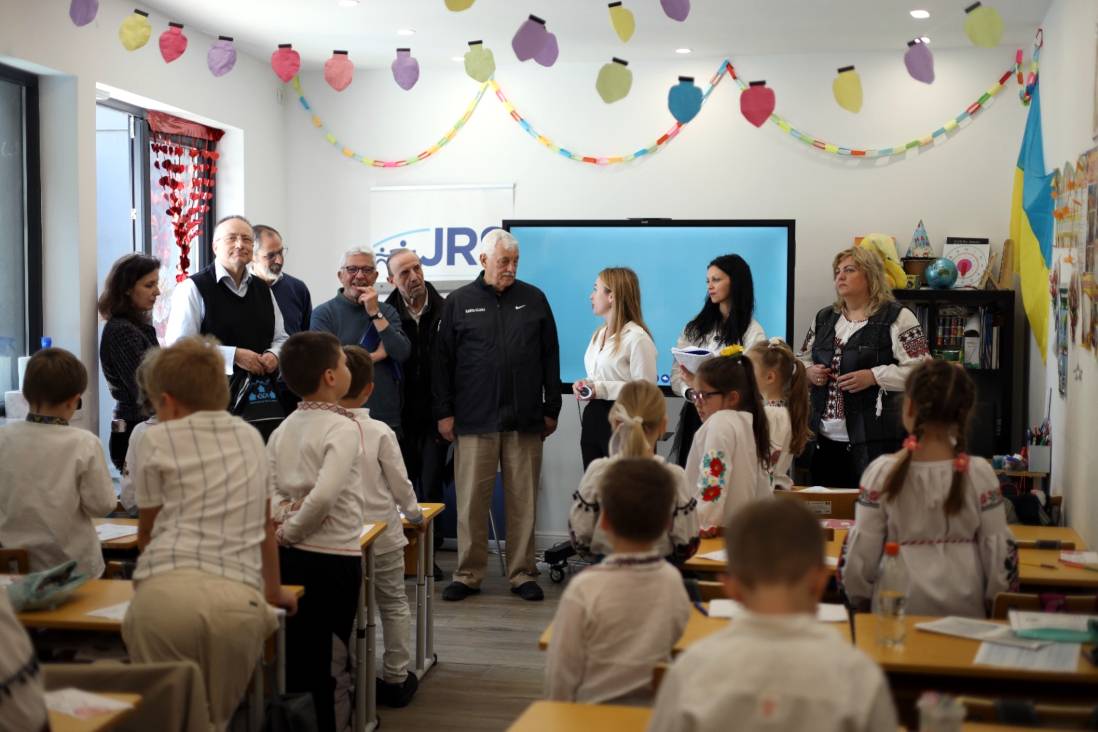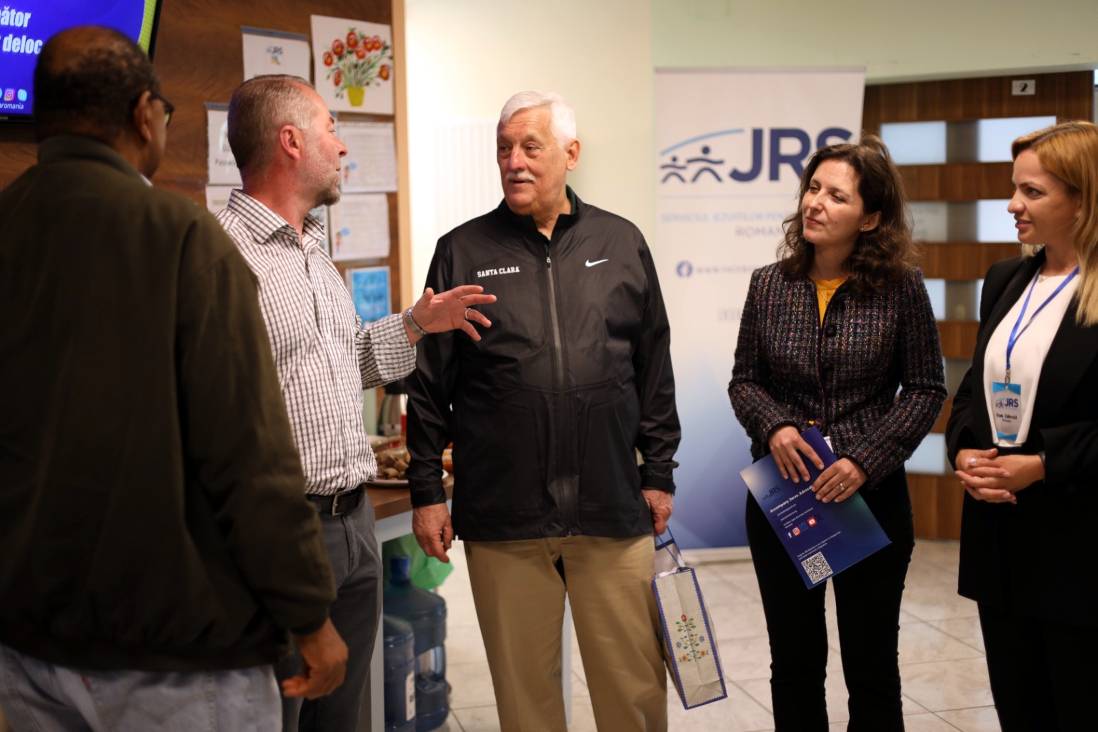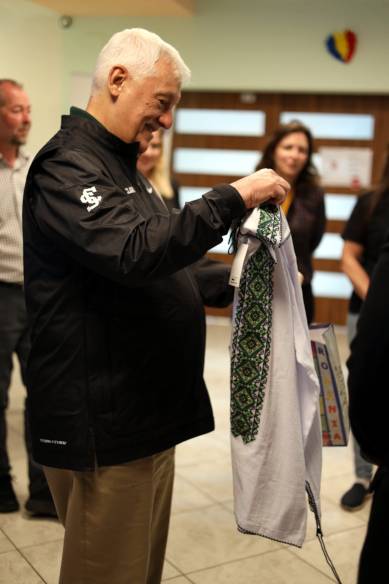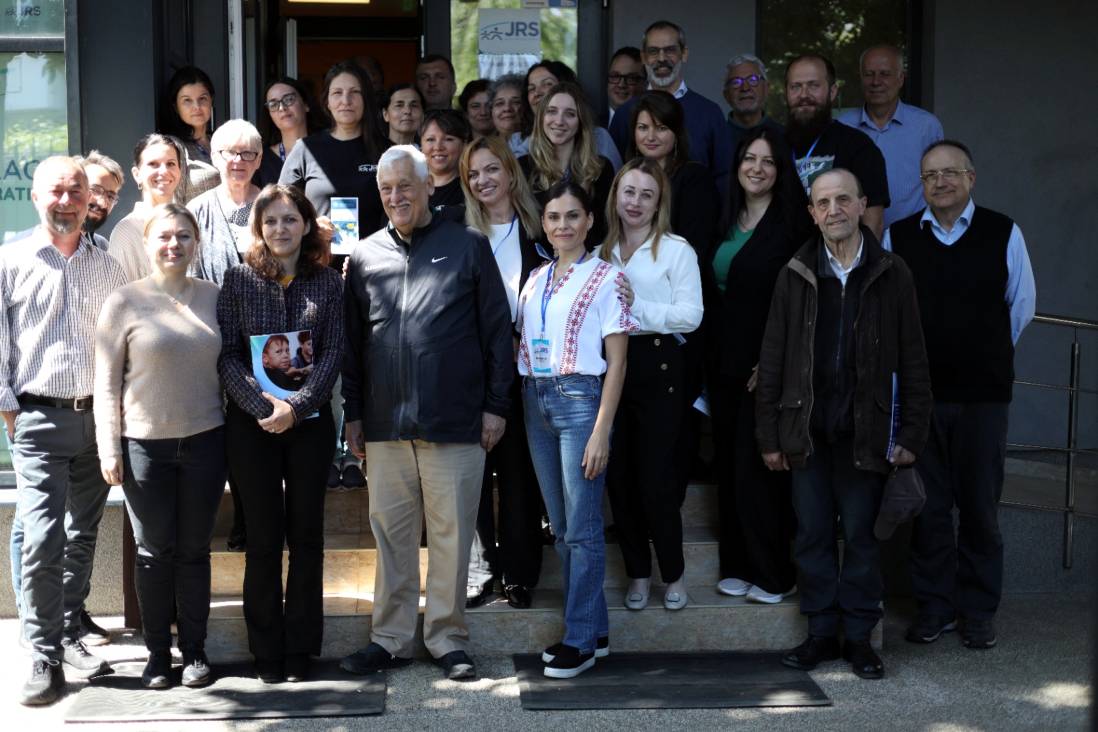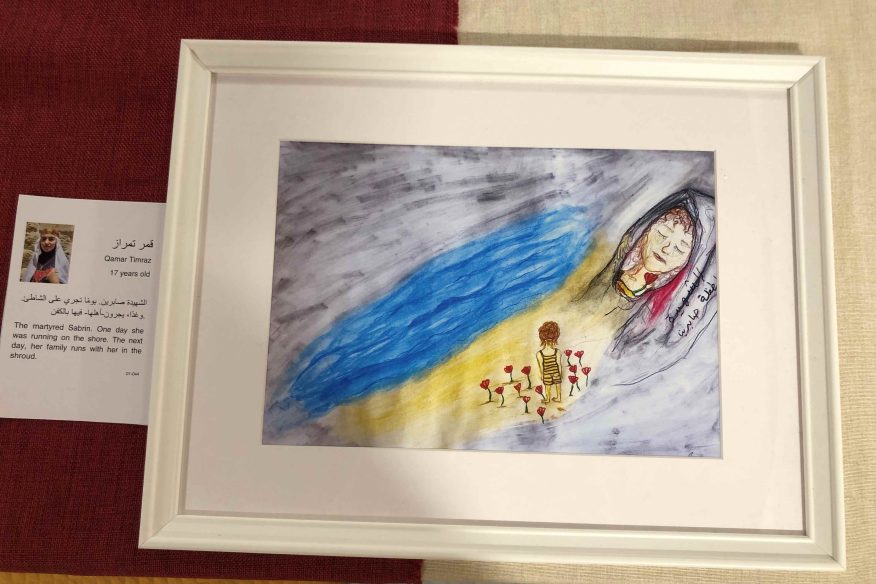Fr. Sosa to JRS Romania: “a service that changes lives”
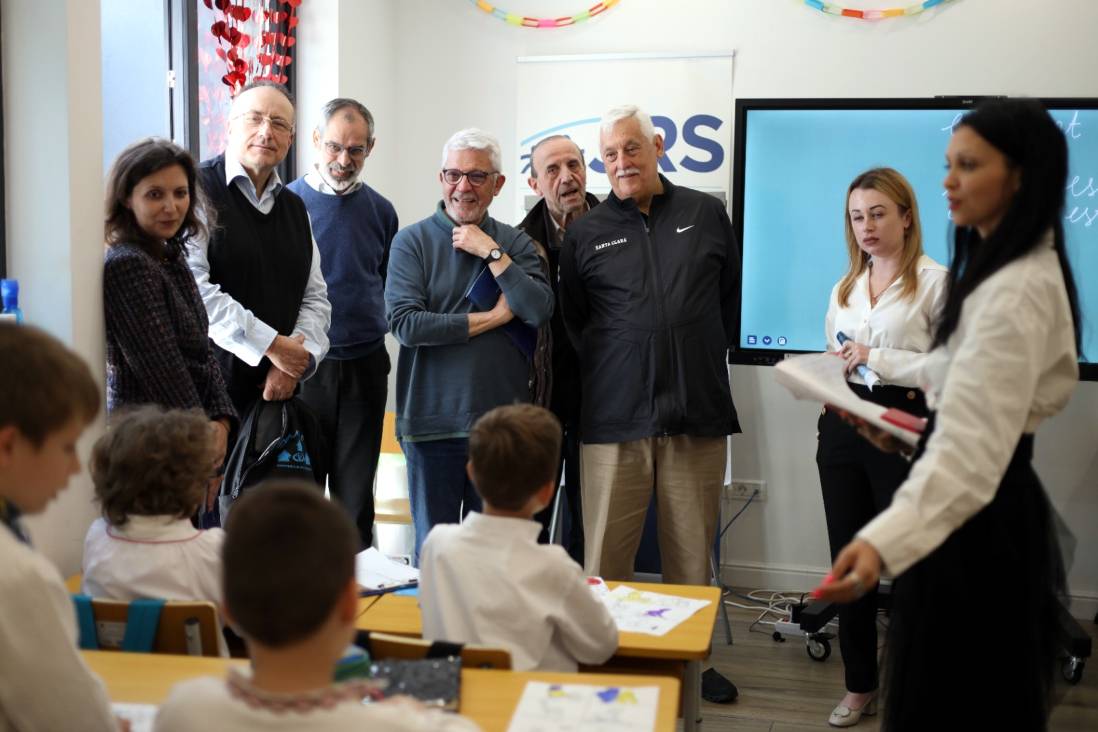
In the morning, Fr General, accompanied by Fr Assistant, the EUM Provincial and members of the Bucharest community, visited the Jesuit Refugee Service team. After a presentation of the services offered by Bianca Albu, Project Manager, and Catalin Albu, General Manager, some employees from Romania, Ukraine, an employee from Syrian and another from Rwanda who has become a Romanian citizen, spoke in a style of great simplicity.
They all emphasised the shared service that can change the lives of so many. Father General highlighted the importance of giving oneself completely and living in service to others. He encouraged everyone to continue with generosity, “not just to do a job, but to give one’s life”. He then visited the nursery classes, the dormitory for migrants and the tomb of the former Provincial of Romania, Fr. Cornel Chira, who died a martyr’s death under torture in prison during the Communist era, and Fr. Rafael Haag, who was also imprisoned in Stalinist prisons.
Data and services
In 2023, JRS Romania implemented 20 projects to provide comprehensive assistance to refugees from Ukraine, Iraq, Syria, Afghanistan and other countries, serving individuals regardless of their legal status.
The team has grown to 180 members, thus enabling the various initiatives to be promoted. More than 25,000 beneficiaries have benefited from the services and assistance essential to improving their quality of life and integration into society.
Among the services provided are ’emergency’ services: food and shelter to ensure access to a basic standard of living; cash distribution, providing financial support to maintain independence and medical and psychological assistance, providing complete health and mental health services.
Formal education was provided through 25 affiliated schools and kindergartens.
Safe spaces within JRS offices were set up to promote a safe learning environment. Other services include adult education with Romanian and English language courses, computer training and vocational programmes such as manicure, make-up and other courses to improve refugees’ skills in order to become self-sufficient.
The spaces created in the centre are also intended to be places that promote solidarity in a community dimension, enhancing and empowering the diverse skills and rich aptitudes of refugees, promoting mutual help and integration into local communities.
JRS is present in more than 10 cities, with 3 integration centres, 1 reception centre, 1 kindergarten and 24 other educational centres, serving more than 3,000 children every day.
